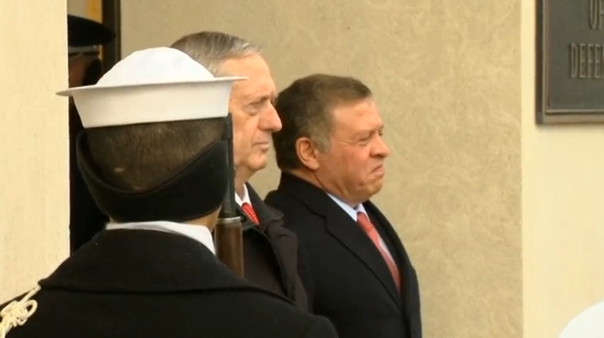
VIRGINIA, United States (Reuters) — Jordan’s King Abdullah opened talks at the Pentagon on Monday (January 30), the first Arab leader to engage in person the new administration of President Donald Trump.
Abdullah held a private breakfast with U.S. Vice President Mike Pence and then met U.S. Defense Secretary James Mattis at the Pentagon.
Abdullah has just finished a visit to Russia where President Vladimir Putin thanked Jordan for supporting the Syrian peace process. Jordan is part of a U.S.-led military campaign against Islamic State militants in Syria.
Less than a week into his presidency, Trump said in a television interview on Wednesday that he would “absolutely do safe zones in Syria” for refugees fleeing violence and that Europe had made a mistake by admitting millions of refugees from Syria.
The creation of safe zones would ratchet up U.S. military involvement in Syria and mark a major departure from former President Barack Obama’s more cautious approach. Increased U.S. or allied air power would be required if Trump chose to enforce “no fly” restrictions, and ground forces might also be needed to protect civilians in those areas.
Abdullah’s visit comes as Trump signed an executive order that would include a temporary ban on all refugees, and a suspension of visas for citizens of Syria, Iraq, Libya, Somalia, Sudan, Yemen, and Iran.
Jordan has been overwhelmed by the influx of refugees since the Syrian conflict began. The vast majority of refugees referred by the U.N. refugee agency to the United States come from Jordan, Turkey, Lebanon, Egypt and Iraq






